READY TO GET STARTED?
REQUEST A FREE ESTIMATE
Fill out the form below or call (888) 466-7849 for a free, no-obligation estimate.
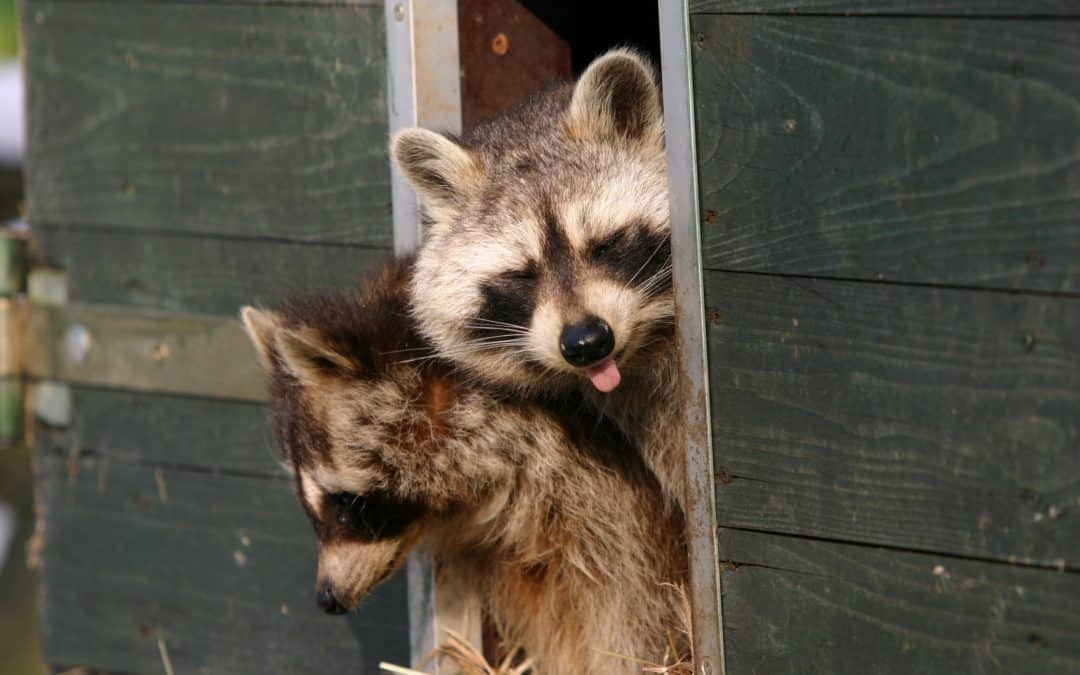
Food, water, and a warm place to live are three things wildlife creatures are in search of this winter season. For them, our house can give them direct access to these needs, where they often find their way into our chimneys, attic, basements, and crawlspaces. It’s important to know what pests to look out for and what preventative measures to take, to help prevent a wildlife infestation.
Rats
Seeing a rat inside is always alarming. These rodents are known to live in crawlspaces and between the side beams of walls, often accessing inside through the smallest hole and gap. Once inside, rats will chew on electrical wire, causing property damage and an increased risk of fires. Their droppings are also a risk, as they contain pathogens dangerous to humans.
Raccoons
Nocturnal omnivores, raccoons are dexterous and can use their paws to open lids and doors. These animals will use their hands to dig for food, especially in garbage cans. A creature of habit, once raccoons discover food sources in a particular area, such as your house, they will keep coming back over and over, causing both a risk of an infestation and damaged property.
Squirrels
Squirrels are one of the most common wildlife creatures homeowners see. While they are cute from afar, if found inside your home, they can cause considerable damage. Squirrels will take refuge in basements and attics, often bringing acorns to store for the wintertime. Like rats, these rodents will also chew on electrical wire, creating a risk of a fire. Both squirrels themselves and their droppings can contain diseases and pathogens.
To avoid a winter wildlife invasion, prevention is key. Here are a few wildlife prevention tips to help with wildlife control:
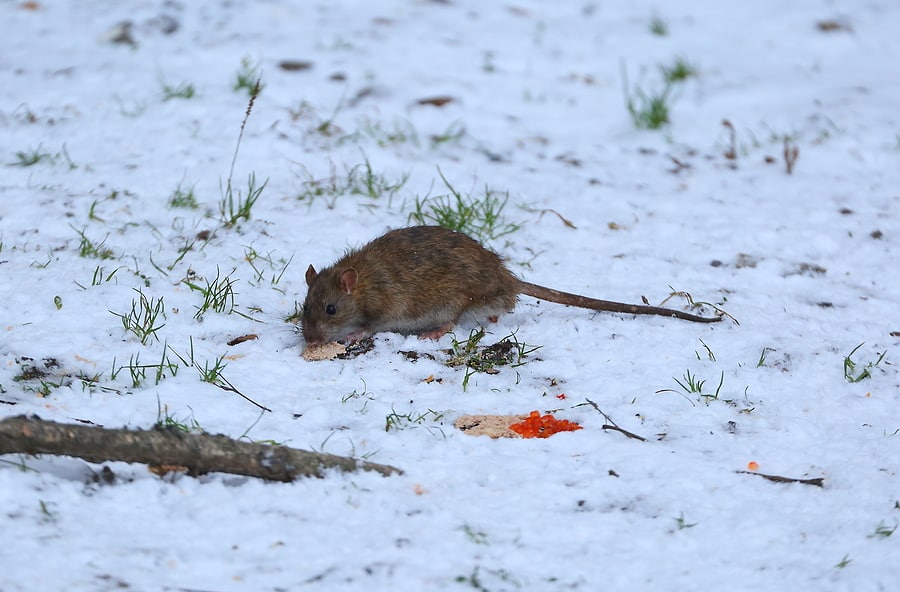
A common myth is that rodents like rats, mice, and even squirrels hibernate in the winter. Unfortunately for us, this is not true. While their activity may slow down while outside in the colder months, rodents are actually active year-round. Rodents can survive a wide range of places and climates. They are also known to carry diseases that can easily be spread to humans. Rodent-borne diseases like hantavirus and salmonella can be serious when contracted by people.
Rodents have developed several survival mechanisms to get through the winter.
In late summer and fall, rodents will start gathering as much food as possible to store in their burrows and nests for the winter. While they don’t hibernate, they will stockpile resources to help limit the number of times they have to venture out in the cold in search of food. They also have to increase the amount of food they eat to help retain their body temperature.
Rodents need a warm place to spend the winter. Like other overwintering pests, they will try and access your home to seek shelter from the cold. Rats, in particular, are capable of chewing through cinder blocks, lead, glass, aluminum, vinyl, brick, and even concrete in order to access your home. If they can’t get indoors, they are also great at digging tunnels and will burrow for shelter, usually under walls or near utility lines that come into your home.
Rodents are extremely creative when it comes to survival. They can adapt to most any situation. Our homes provide the ideal opportunity for rodents to overwinter by providing convenient cavities in walls, attics, crawlspaces, and between floors that protect them from the elements. These hiding spots are usually filled with insulation, as well, which gives them the perfect nesting material. Add in the heat we turn on in the winter and the food crumbs and other food sources we provide and they have an ideal living situation during the winter.
To keep these pests out this winter, try these rodent prevention tips:
If you have a problem with rodents, contact your local pest control company who can help identify the type of rodent you are dealing with and set you up with the appropriate rodent control program.
Prevent Bed Bugs this Holiday Season
How to Deal with a Pest Delivery at Your Business
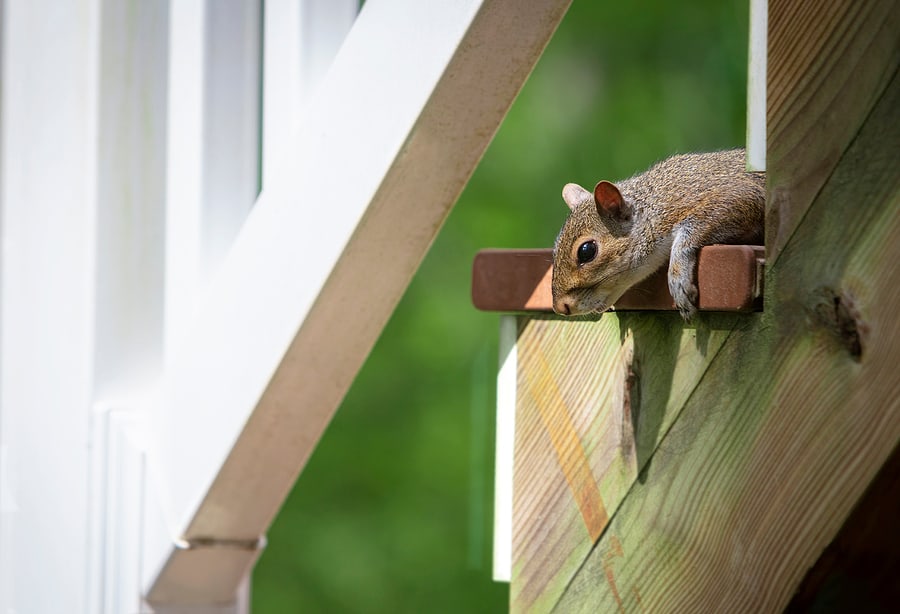
While many of us deem squirrels as cute and cuddly, the moment they start to invade our homes, we soon lose that fondness for wanting them around. As the weather begins to cool down, these pests will look towards houses, specifically attics, to create a nest and keep warm. Once inside, squirrels can cause major damage, such as chewing on electrical wires, destroying insulation, and leaving behind their droppings and urine. Luckily, there are a few ways to deter these creatures from your house. Check out these squirrel control tips you can use at home.
Trees and limbs can give squirrels easy access to your roofline. To prevent squirrels from gaining access, make sure that your tree limbs are cut back and trimmed away from the roofline. By cutting these access points, it’s an easy way to keep them away from your attic, chimneys, and any open holes or gaps leading inside the house.
Cleaning up around your home can also help to prevent these squirrels from entering your property. Squirrels are omnivores, meaning they will eat both meat and plants, including fruits, nuts, and small insects. To prevent them from scavenging for food around your house, make sure to dispose of garbage regularly while always using a sealed container. If you have any fruit trees on your property, try to look out for any ripe fruit and dispose of or pick them promptly.
Getting rid of squirrels can be difficult, and it can often take a trained professional who has the expertise to help prevent and eliminate them. If utilizing preventative measures fails and squirrels have invaded your property, consider reaching out to your local wildlife control company where they can provide you with the most effective trapping and removal methods for these rodents.
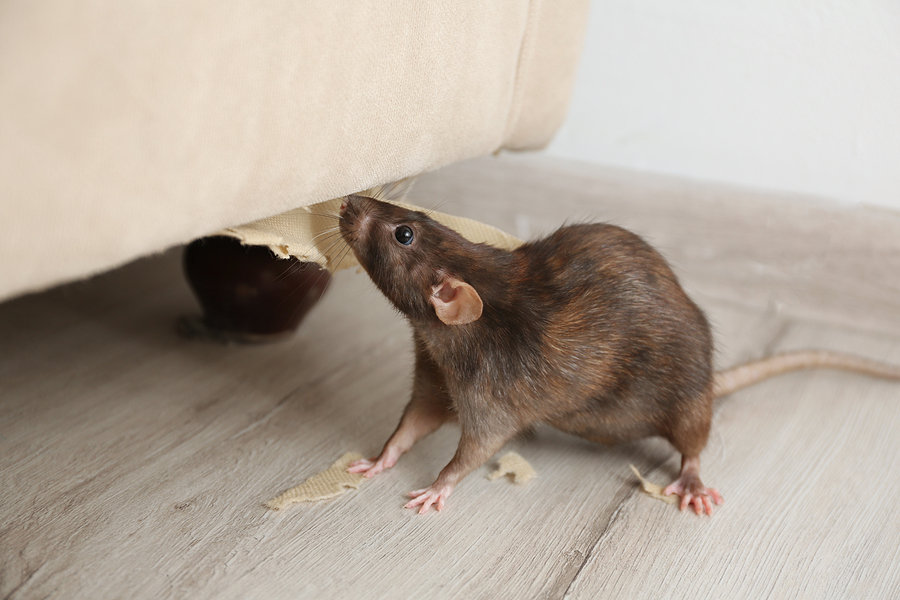
The last thing any homeowner wants to deal with is pests. A household pest is any insect or animal that is commonly found in a household structure that can cause destruction to the property or to your health. While the occasional critter can make its way inside, routine occurrences indicates the likelihood of an infestation. Fortunately there are some DIY pest control tips you can use at home to help prevent these pests from taking over. Here are a few of the most common household pests and how to prevent them.
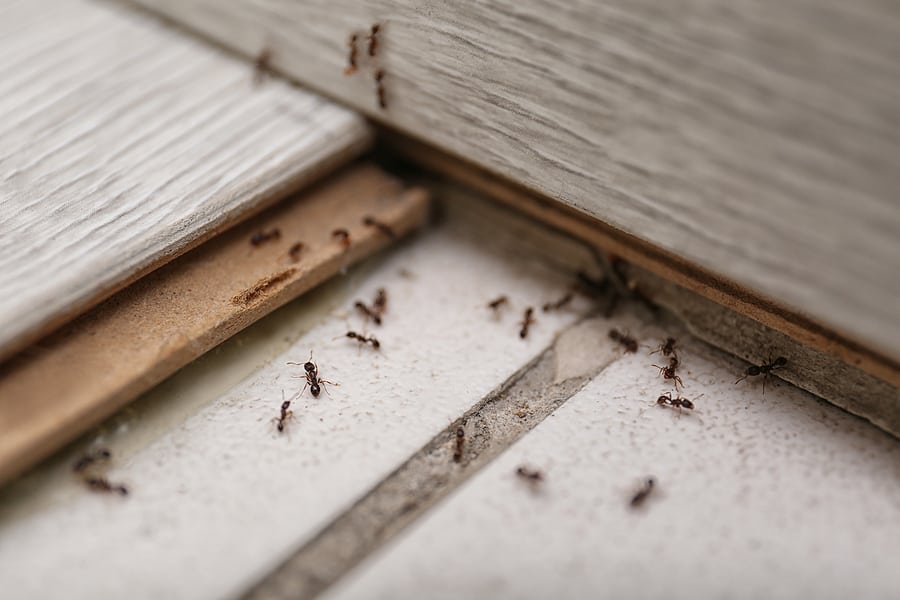
Most ants don’t cause any structural damage to your home (with the exception of carpenter ants). They are, however, the #1 nuisance pest in the United States. Ants are difficult to control because their colonies are so large. These pests typically come indoors in search of food and water and can usually be found near these sources in your home – especially in kitchens and bathrooms. Prevent ants by:

Birds are not usually considered nuisance pests but their nests can obstruct common areas of your home and their droppings can contaminate or damage other areas. Birds usually enter your home in search of food and shelter. Prevent birds by:

Cockroaches are dangerous to humans as they are known to carry serious diseases and trigger both allergies and asthma. These pests multiply quickly, making them very difficult to control. Roaches will come into homes in search of food, water, and shelter, with them often found in kitchens, bathrooms, and laundry rooms. Prevent roaches by:
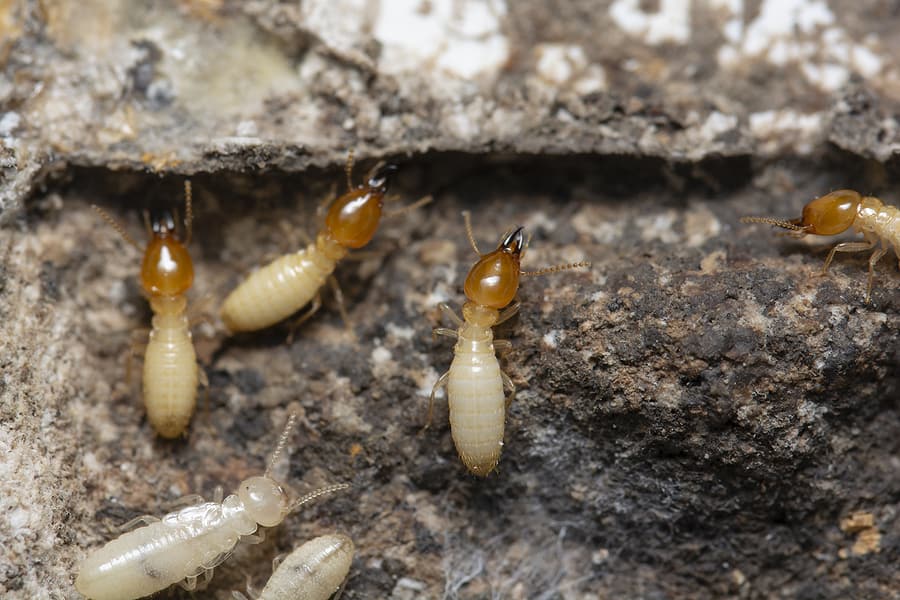
Termites are known as silent destroyers, eating wood from the inside out and going undetected for long periods of time. Common signs of termites include swarms; mud tubes; discarded wings; discolored drywall; peeling paint; wood with a hollow sound when tapped; squeaky floorboards; doors and windows that stick; damaged wood; loose tiles; and buckling floors. Prevent termites by:
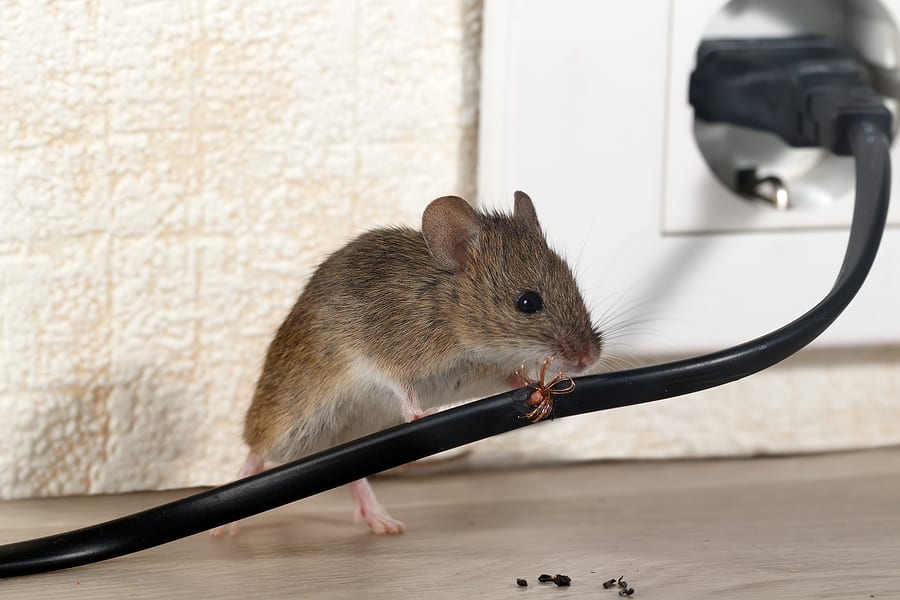
Rodents are common household pests and include rats, mice, squirrels, and raccoons. Rodents can cause significant damage to your property by chewing through electrical wires and insulation. They can also contaminate food and spread disease. Prevent rodents by:
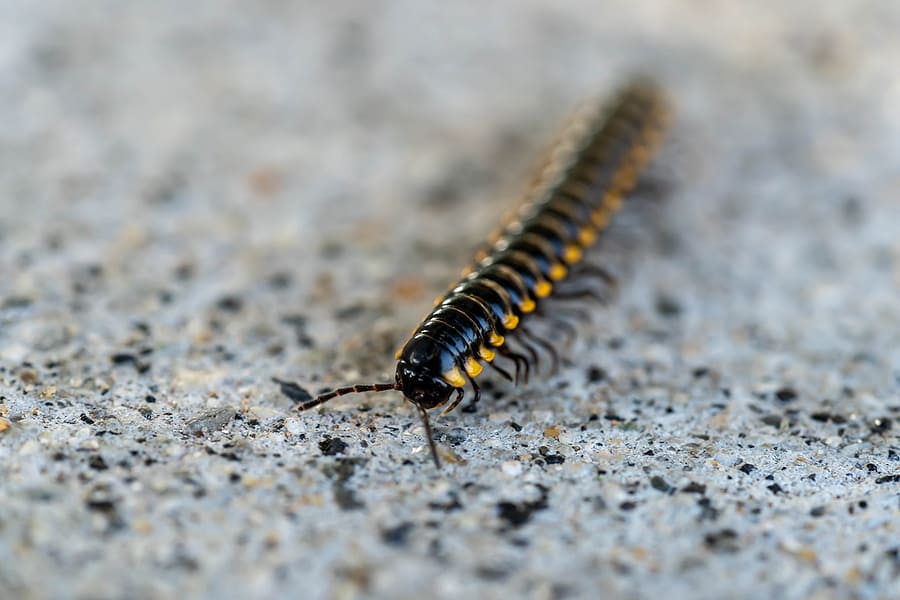
Centipedes are arthropods with 14 or more body segments and one pair of legs per segment. Millipedes are also arthropods but they have 2 pairs of legs on their body segments. Neither of these pests are considered dangerous and don’t cause damage or spread disease. They can, however, be annoying if they infest in large numbers. Both of these pests thrive in moisture-rich environments. Prevent centipedes and millipedes by:
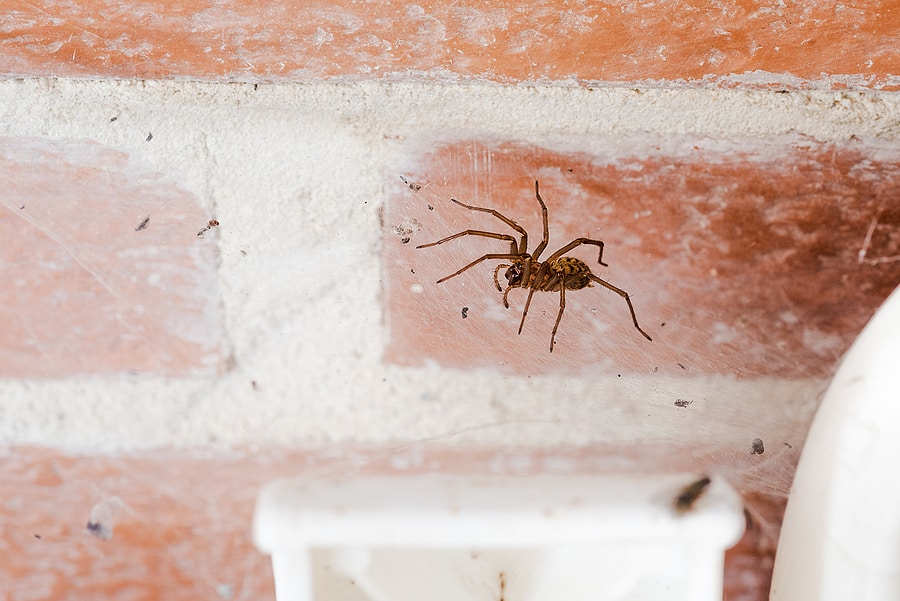
Although there are a few venomous spider species in our area, most spiders that make their way into your home are harmless (and even beneficial by eating other pests)! Prevent spiders by:
The key to household pest control is prevention. By taking these steps early, you can head off an infestation before it starts. If you have a problem with any household pests, contact your local pest control company for a free evaluation and comprehensive treatment plan.
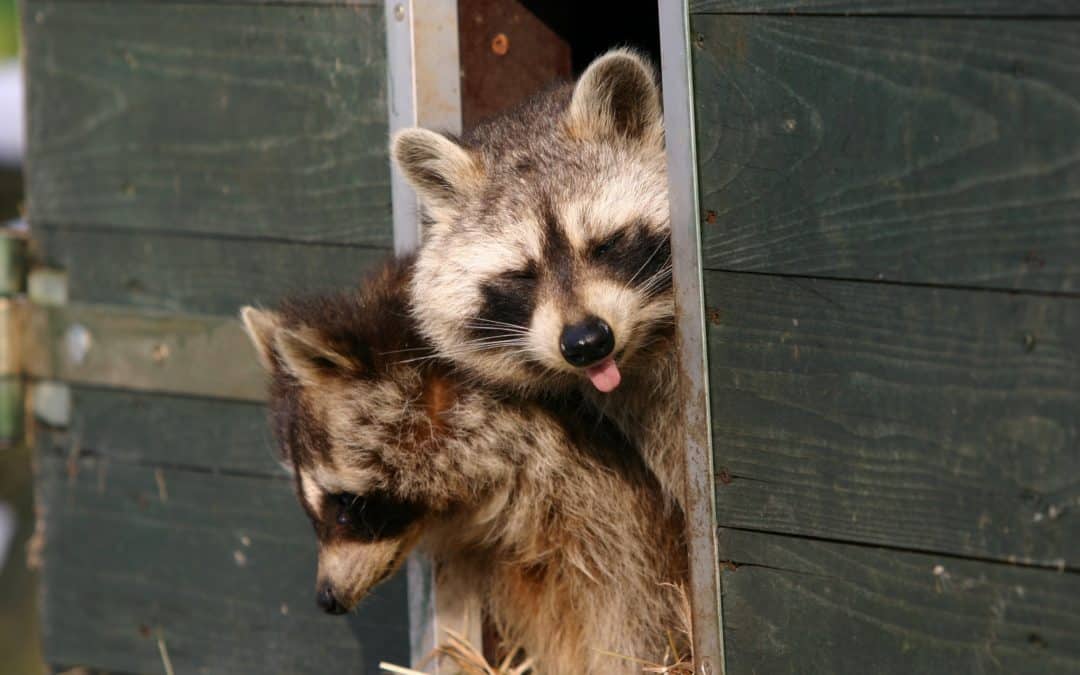
Fall is just around the corner! While we are all eager for that brisk fall breeze to arrive, we know that as the temperatures get cooler, certain wildlife creatures will be more active during the fall season. Wildlife such as squirrels, mice, opossums, and rats are just a few that will start to look indoors for a warm habitat and food source. Before the fall season arrives, every homeowner should start wildlife control preparations early to help prevent these animal intruders from getting inside.
Wildlife animals are constantly in search of food and water to survive. Animals such as opossums and rats often look to garbage cans to find food, making a huge mess in the process. To keep them from scavenging through your trash cans, make sure your garbage isn’t overflowing. Keep your exterior garbage cans secure by locking and sealing the lids overnight.
Raccoons, squirrels, and birds will easily sneak into open gaps or holes leading right into your home. Screen attic vents and openings in chimneys can provide them with ideal openings. Ensure that the vents and chimneys are fully screened and sealed off. Likewise, check around the exterior of your home for any gaps or holes leading inside. Rats and mice only need a small opening to get inside, so ensuring that you’ve sealed any openings can help eliminate the chance of infestation.
Your yard is the first thing that wildlife creatures will enter. Keeping your yard well-maintained can help to prevent these pests from inhabiting. Make sure to clean up leaf piles, brush, and debris throughout the yard. When cleaning up the piles, put them in sealed waste bags and store them in the garage until garbage day. Trim your tree limbs or branches away from your roofline as animals, such as squirrels, will use them as a guide to enter inside the home.
Preventing wildlife from entering your property can be difficult but possible. If you’ve noticed more wildlife creatures than usual, consider calling your professional wildlife control company. These wildlife exclusion experts will inspect your home, identify entry points, safely remove infested animals, and prevent them from entering in the future!